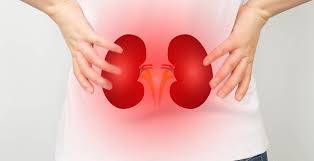Sniffing glue is a form of drug abuse that can have serious health consequences. It involves inhaling the vapors from glue, which contain volatile organic compounds that can cause damage to the brain, liver, and other organs. In this post, we will discuss how sniffing glue affects your health, the health risks involved, the symptoms of glue-sniffing, the glue-sniffer’s high, and the available treatment options.
Symptoms of Glue-Sniffing: The symptoms of glue-sniffing can vary depending on the individual and the amount of glue inhaled. However, common symptoms include headache, dizziness, nausea, vomiting, confusion, slurred speech, and impaired judgment. In severe cases, glue-sniffing can cause seizures, coma, or even death.
Glue-Sniffer’s High: The high that comes from sniffing glue is caused by the chemicals in the glue vapors. When these chemicals are inhaled, they can cause a sense of euphoria, relaxation, and detachment from reality. The high can last for several minutes or hours, depending on the amount of glue inhaled.
Health Risks of Glue-Sniffing: The health risks of glue-sniffing are numerous and severe. The chemicals in the glue vapors can cause damage to the brain, liver, and other organs. Long-term glue-sniffing can lead to memory loss, impaired cognitive function, and even permanent brain damage. In addition, glue-sniffing can cause respiratory problems, heart damage, and an increased risk of cancer.
Treatment Options: Treatment for glue-sniffing typically involves a combination of medical and psychological interventions. Medical treatment may include detoxification, medication-assisted treatment, and supportive care for any health problems caused by the glue-sniffing. Psychological treatment may include behavioral therapy, counseling, and support groups. In severe cases, hospitalization may be necessary to ensure the safety of the individual.
Summary: Sniffing glue is a form of drug abuse that can have serious health consequences. The symptoms of glue-sniffing include headache, dizziness, nausea, vomiting, confusion, slurred speech, and impaired judgment. The high from sniffing glue is caused by the chemicals in the glue vapors, which can cause a sense of euphoria and detachment from reality. Health risks of glue-sniffing include brain damage, respiratory problems, heart damage, and an increased risk of cancer. Treatment options for glue-sniffing may include medical and psychological interventions, such as detoxification, medication-assisted treatment, behavioral therapy, counseling, and support groups. If you or someone you know is struggling with glue-sniffing, seek help immediately.






























